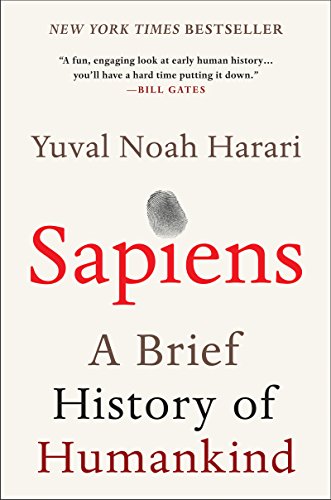

This article is an excerpt from the Shortform summary of "Sapiens: A Brief History of Humankind" by Yuval Noah Harari. Shortform has the world's best summaries of books you should be reading.
Like this article? Sign up for a free trial here .
What were the causes and consequences of the invention of writing? Where was writing invented, and how did it change human history?
The Sumerians invented writing in southern Mesopotamia between 3500 BC and 3000 BC. The invention of writing first affected accountants, not playwrights and poets.
We’ll cover the reasons writing was invented and look at how it changed the world.
The Invention of Writing
The social orders and cooperative systems of some species are maintained because the information for their maintenance is encoded in their DNA. For example, the behavior that makes a female bee fulfill her role as either a worker or queen is programmed into her genes.
But imagined systems aren’t encoded in our DNA, so we have to memorize the roles and behaviors they require. This worked for Sapiens for a while, but our systems became complex and required more information than one brain could hold. This spurred on the invention of writing.
Limits of the Brain
The brain isn’t good at storing information. It has a limited storage capacity and it doesn’t last forever. When humans die, so do their brains. All the information contained in a single brain is lost. Transmitting information to other brains is possible, but how much can be transmitted is limited, and what is transmitted may be muddied and distorted.
Further, the brain has evolved to store some types of information better than others. We’re good at remembering information about the qualities and behavior patterns of plants and animals, information about topography, and information about social ties. This information was crucial to the survival of our ancestors. For example, they needed to know which mushrooms were good to eat and which near-identical mushrooms would kill them, so they got adept at observing and memorizing subtle visual signs.
But the brain did not evolve to memorize numbers, which would become important during the Agricultural Revolution. Hunter-gatherers didn’t need to know how much fruit was on a tree. Because of the brain’s limitations for memorizing numbers, societies remained relatively small for thousands of years after the dawn of the Agricultural Revolution. They just couldn’t store the data needed to grow their societies. But kings needed to collect taxes to support their widening kingdoms, and this involved numbers. They needed the invention of writing.
The Invention of Writing
The solution was the invention of writing. Although today we connect the word “writing” with “literature,” early writing was used to record tax payments, debts, and property ownership, not to write poems and stories. Writing also wasn’t invented to record spoken language. It was invented to fill a gap, to succeed where spoken language failed. It was needed to record data.
The Sumerians invented writing in southern Mesopotamia between 3500 BC and 3000 BC. Eventually, the Sumerians wanted to record more than just mathematical data, so they gradually added signs to their script, which developed into a script capable of representing spoken language. We call it cuneiform.
People who weren’t accountants started writing. Kings used cuneiform to give orders, priests used it to write down oracles, and citizens wrote letters. Also around 2500 BC, the Egyptians developed hieroglyphics. Soon after, societies in China and Central America developed full scripts.
It was only after the spread of full scripts that people started writing histories, dramas, prophecies, and poetry. Works that existed only through the passing down of oral tradition, such as the Hebrew Bible, the Iliad, and the Buddhist Tripitaka, began to be written down.
The Problem with Writing
Were there problems with the invention of writing? Inventing cataloguing and retrieval systems for data is much harder than inventing writing itself. Finding information on clay tablets, which the Sumerians used to store much of their data, or in the records stored in the knots of thousands of quipu cords, used to record numerical data in the Andes, proved difficult. How do you sort through all that information?
In order to use all this data, societies had to figure out how to organize it and how to find specific pieces of information when they were needed. Sumer, pharaonic Egypt, ancient China, and the Inca Empire all thrived because of their organization of written information. These societies had schools that trained scribes to read, write, catalog, retrieve, and process information, in addition to using dictionaries and calendars.
These organizational changed the way Sapiens think. Generally, we free associate to locate information stored in our brains. But a scribe wouldn’t get very far free-associating. He had to reprogram his thinking to work within these artificial, non-natural systems of organization. Holistic thinking gave way to compartmentalization.
Arabic Numerals and the Invention of Writing
A huge advance in the written form was the invention of the signs representing 0 to 9, invented by the Hindus but refined and circulated by the Arabs. We call them Arabic numerals. This was the foundation of the mathematical notation we use today and was a turning point in the history of the invention of writing.
This is a partial script (it can’t record spoken language), but that hasn’t stopped it from being the most used language in the world. No matter what language a country speaks, almost everyone speaks the language of mathematics.
Mathematical script increased the efficiency of recording, processing, and transmitting data, and it broadened the capacity of the human potential. Even today, advanced written script can lead to new human capabilities. For instance, most brains can’t comprehend the details of quantum mechanics because they aren’t wired to do so. But physicists can because they’ve retrained their brains to think less like humans and more like computers, and they have the aid of processing systems like mathematical script. Much of their “thought process” takes place outside of their heads, on a chalkboard or a computer.
———End of Preview———

Like what you just read? Read the rest of the world's best summary of "Sapiens" at Shortform . Learn the book's critical concepts in 20 minutes or less .
Here's what you'll find in our full Sapiens summary :
- How Sapiens outlived and outlasted the 8+ other human-like species on Earth
- The 3 critical revolutions in human existence that led to our domination of the planet
- How much of what powers our world today is really just a shared mass delusion
- What the future of humanity might look like






